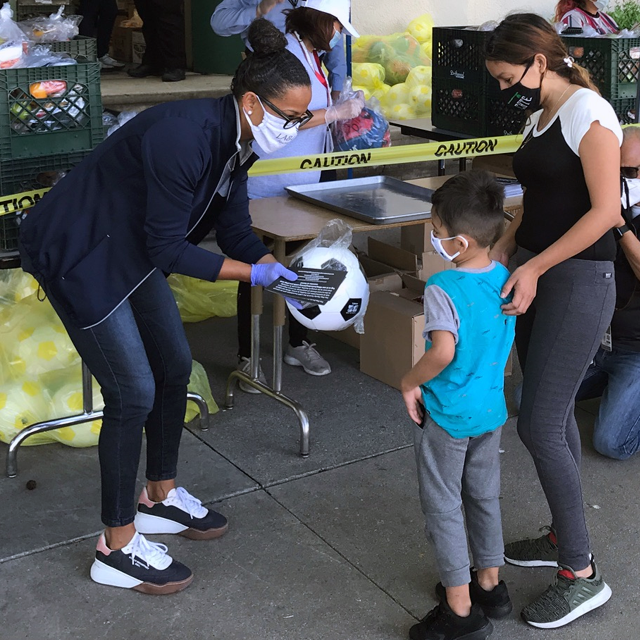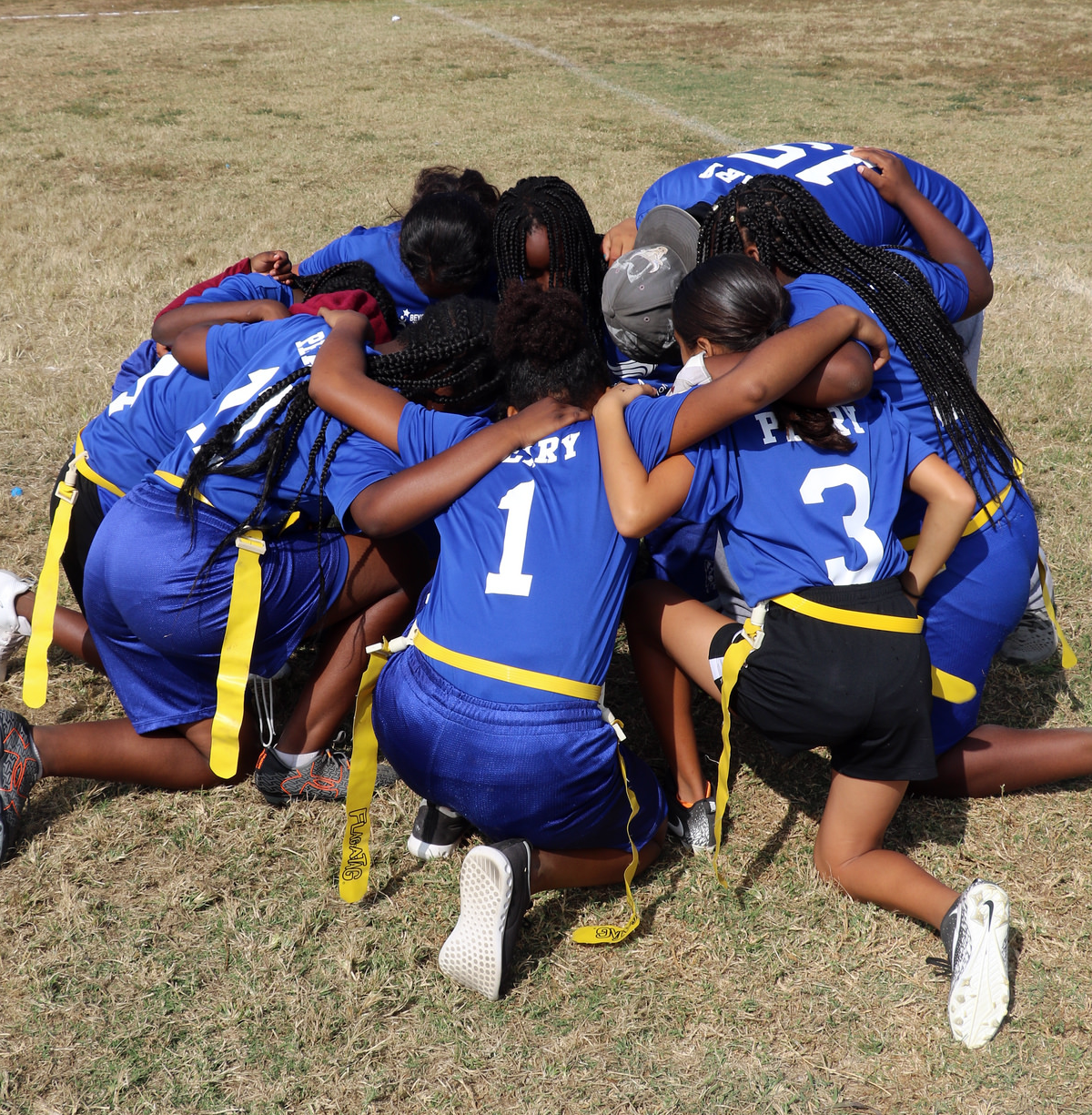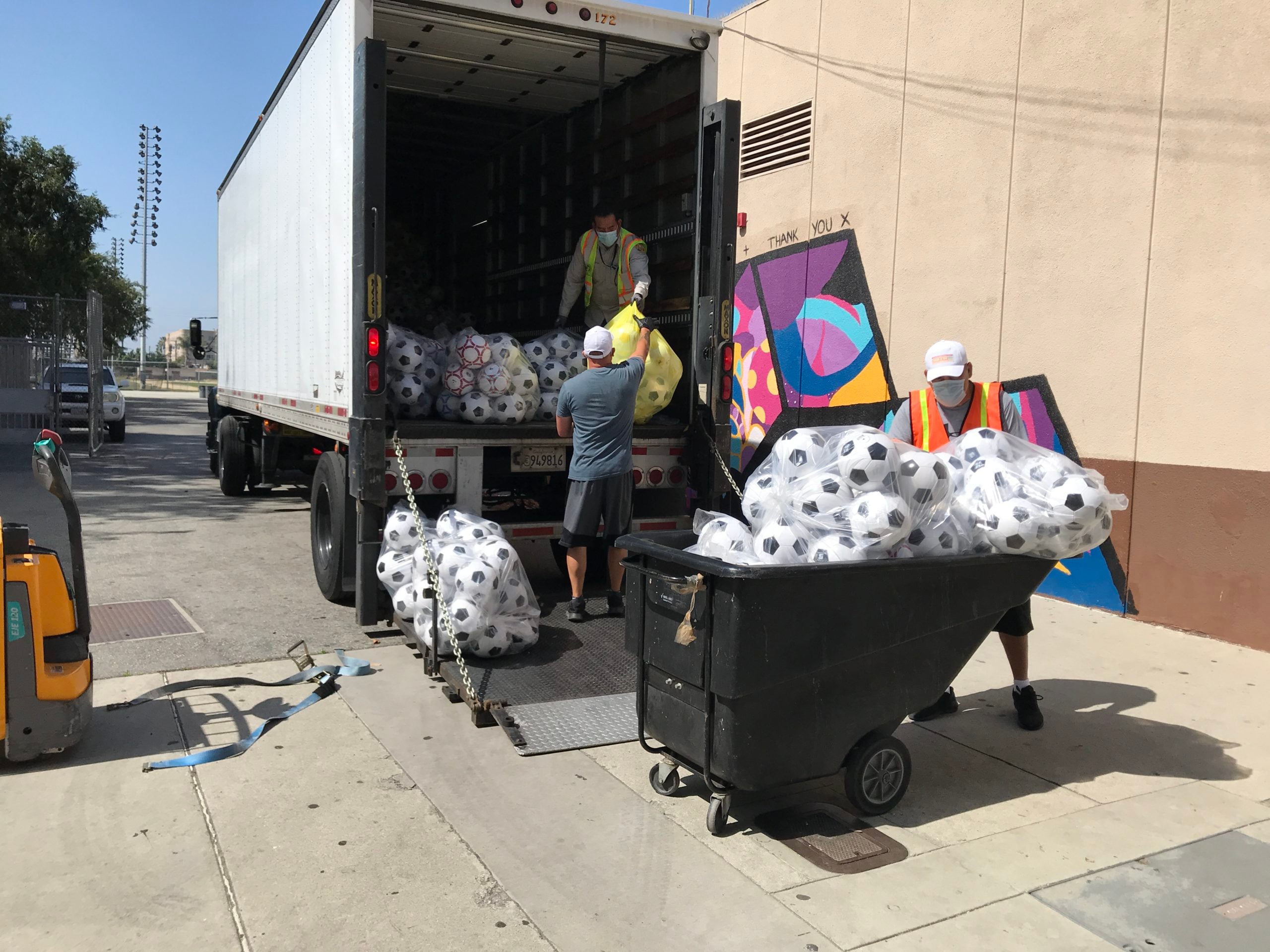
 The Play Equity Fund increases access to sport for Los Angeles youth.
The Play Equity Fund increases access to sport for Los Angeles youth.
The Games Have Begun: How Sports Can Inspire Children And Create A More Equitable Landscape In LA
Los Angeles is now on the clock. With Super Bowl LV ending recently in Tampa, the countdown has begun for Los Angeles to host its own storybook ending when LA hosts next year’s big game.
For the organizers involved, success in 2022 might simply be measured by how many empty stadium seats can be filled with fans nearly two years after the start of the pandemic. But for the Play Equity Fund, this time next year won’t be seen as an ending but rather, a beginning. The organization sees the NFL’s championship game as just the first of several consequential events this decade that will help shape LA’s post-pandemic future.
With its tremendous spotlight and reach, the Super Bowl can set the impression of how a major sporting event can leave a lasting legacy on Los Angeles and create conditions for the region to be healthier and thrive moving forward. Just as the 1984 Summer Olympics has through the work and impact of the LA84 Foundation.
After years of diligent work by the city and the Los Angeles Sports & Entertainment Commission (LASEC), in addition to Super Bowl LVI, the region will host many of the world’s most prestigious sporting events in the near future – and it’s an opportunity to help build stronger communities and develop healthier kids.
These events include the 2021 MLS All-Star Game at Banc of California Stadium, the 2022 MLB All-Star Game at Dodger Stadium, the 2023 College Football Playoff National Championship at SoFi Stadium, the 123rd U.S. Open Championship at Los Angeles Country Club, the 2024 NCAA Division I Men’s Basketball West Region Championship at the Staples Center, the 2026 Candidate Host City for FIFA World Cup at the Rose Bowl and the 2028 Summer Olympic & Paralympic Games at venues across Los Angeles.
 The Play Equity Fund increases access to sport for Los Angeles youth.
The Play Equity Fund increases access to sport for Los Angeles youth.
Established by the LA84 Foundation, the Play Equity Fund is the only nonprofit focused solely on Play Equity as a social justice issue. With research clearly showing the importance of sports and structured play in kid’s lives – and with sports providing a framework for brighter, healthier futures for children – then access and opportunity should be available for all. The Play Equity Fund is the cornerstone of the Play Equity Movement and committed to finding sustainable solutions.
Where the organization feels it can cement LA’s post-pandemic future is by being a trusted partner of LASEC to ensure these major sporting events leave a lasting legacy in the communities who are most in need. The organization also helps our region cross the bridge from sport and physical activity to an integrated approach to understanding child and community wellness, which includes broader themes of academic success, whole child development, racial justice, equity, and social justice.
Community- or school-based sports programs are not as available to young people as many adults now recall so fondly from their childhoods. And nor are the life benefits that these programs provide to youth, such as learning teamwork, resiliency, and leadership.
“As we emerge from the pandemic, we expect to see this to crisis play out in the economic separation between the haves and the have–nots for sports participation,” said Renata Simril, President & CEO of the LA84 Foundation, and President of the Play Equity Fund. “It will be the gap between those who can afford to play sports and those who come from families who are devastated financially by the pandemic.”
Simril has led the LA84 Foundation for over five years. She explained that sports participation rates among LA’s youth was strong and looked healthy on paper before the pandemic. However, she said that there were growing concerns among educators and industry leaders in the years leading up to the pandemic that a participation gap existed. This was a crisis, hiding in plain sight, between children from affluent families and children from households with lower incomes.
According to a 2020 study by the LA84 Foundation, over 82% of all children ages 6-17 in Los Angeles County participated in organized sports. But the numbers diverge along class lines. Children from families with incomes over $150,000 saw a 93% participation rate, while 68% of kids play sports from households earning below $35,000.
Simril said several factors have contributed to the decline in participation in sports for communities of color. These include public funding cuts of enrichment programs in schools including youth sports, increase in program fees, safe passage to playgrounds and lack of playing fields.
“Simply stated, kids from affluent families play sports at a significantly higher rate than young people from less wealthy households, and boys continue to play at a higher rate than girls,” says Simril. “Play Equity means that the amount of exercise kids get must not be determined by their income, geography, gender or ability, because the power of sport is not a privilege of the few but a fundamental right for all kids.”
The LA84 Foundation and the Play Equity Fund are committed to facing these challenges and addressing the systemic barriers that are preventing kids from this most basic human right. These organizations expanded their efforts in 2020 to reach as many young people as possible to stay healthy during the pandemic and have taken an active role in advancing racial equity with strong new partnerships.
 The Play Equity Fund increases access to sport for Los Angeles youth.
The Play Equity Fund increases access to sport for Los Angeles youth.
To pursue change in communities of color and develop meaningful programs, the Play Equity Fund partnered with The Alliance, the 11 professional sports teams in greater Los Angeles who formed a historic collaboration following the death of George Floyd. The Alliance is working to create change in communities of color and are addressing the issues of racial injustice and racial equity that prevent kids from benefitting from the transformational power of sport and play.
“In a world where there are a multitude of crises that we face, we can’t continue to try the same thing and expect different results,” said Simril. “How we make progress in a post-pandemic world comes down to collaboration, collective impact, and innovation.”
The 11 teams have united to advocate for social justice, address disparities and take actions to help end racial inequality. In this first year of the program developed by the Play Equity Fund, the teams have partnered with two local high schools – View Park High School and LA Promise Charter High School – and formed The Alliance Student Empowerment Program, which is utilizing sports as an entryway to leadership, advocacy and systems change. The curriculum was co-created by the Brotherhood Crusade and the Community Coalition.
In addition to enhanced learning opportunities for the students and conversations with pro athletes, The Alliance has provided grants to expand youth sports programs in South Los Angeles. The Play Equity Fund also plans to utilize this initiative to inspire young people to understand there are meaningful careers off the field in sports-related industries.
“We’re coming together to increase opportunities, eliminate barriers, and to leverage the platforms of our partners so that youth sport and play are valued for their social benefits, as well as an antidote to what ails our society,” said Simril. “Sport isn’t just something nice to have, it's an essential lifeline for so many children.”
For Simril and the Play Equity Fund, the clock is now ticking, and they need everyone to join the Play Equity Movement
